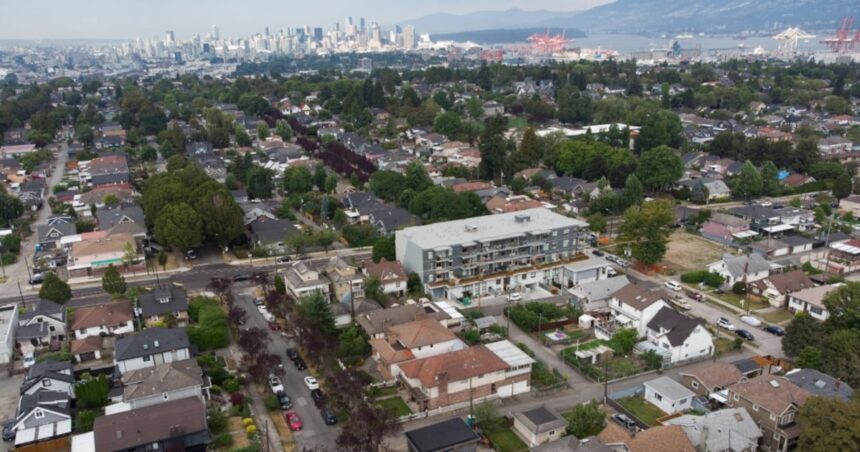I reviewed over 300 pages of real estate regulatory filings last month to uncover a pattern of enforcement that’s rarely discussed in public. What emerged was a troubling picture of unlicensed property management activities across British Columbia that often leave tenants and property owners vulnerable to financial harm.
The latest case exemplifies this ongoing issue. A Vancouver man has been slapped with an $80,000 penalty for operating an unlicensed property management business, one of the largest fines imposed by the BC Financial Services Authority (BCFSA) for this type of violation.
According to documents obtained through a freedom of information request, the individual managed approximately 47 rental properties throughout Metro Vancouver between January 2022 and March 2025 without the required license. The BCFSA investigation revealed he collected rents, advertised vacant units, and conducted property showings while misrepresenting himself as a licensed property manager.
“This penalty reflects the seriousness with which we view unlicensed activity in the real estate sector,” said Blair Morrison, CEO of the BCFSA. “Property management requires specific qualifications and adherence to strict standards designed to protect consumers.”
The case highlights a concerning gap in regulatory oversight. Ron Usher, general counsel for the Society of Notaries Public of BC, told me during an interview that many property owners don’t realize hiring unlicensed managers puts them at significant risk.
“There’s often a complete lack of insurance coverage, no trust accounts for holding funds, and no regulatory body overseeing these operations,” Usher explained. “When things go wrong, property owners have limited recourse.”
The investigation began after three separate property owners filed complaints claiming misappropriation of rental funds. Court records show the unlicensed manager failed to remit approximately $136,000 in collected rents to property owners while continuing to charge management fees ranging from 8-12% of monthly rental income.
This case isn’t isolated. BCFSA data I analyzed shows enforcement actions against unlicensed property managers have increased by 37% since 2022. Last year alone, the authority issued 23 penalties for unlicensed property management activities across the province.
Lisa Frey, a housing rights advocate with the Tenant Resource & Advisory Centre, described how tenants are often caught in the middle of these situations. “We’ve seen cases where tenants paid rent faithfully for months, only to face eviction notices because the property manager never forwarded payments to landlords,” she said. “It creates housing instability through no fault of the tenant.”
The Real Estate Services Act requires anyone providing property management services in British Columbia to be licensed through the BCFSA. Licensed property managers must complete specific educational requirements, maintain professional liability insurance, and follow strict rules about handling client funds.
“Trust accounts are fundamental to consumer protection,” explained Jennifer McKenzie, a real estate lawyer I consulted while researching this story. “Licensed property managers must keep rental deposits and monthly payments in separate accounts that are regularly audited. Unlicensed operators typically commingle these funds with personal accounts.”
I examined provincial court records from the past five years and found 17 civil actions related to unlicensed property management, with average damages claimed exceeding $75,000 per case. Most lawsuits involved allegations of misappropriated funds, failure to maintain properties, or improper handling of security deposits.
The consequences extend beyond financial penalties. Under section 119 of the Real Estate Services Act, unlicensed property management is an offense punishable by up to two years imprisonment for serious or repeat violations.
Property owners can protect themselves by verifying a manager’s credentials through the BCFSA’s online registry before signing any agreement. The registry provides public access to licensing information and disciplinary history for all real estate professionals in the province.
“Always ask for proof of licensing and insurance,” advised Morrison. “Request references from current clients and confirm the existence of proper trust accounts for handling rental income and deposits.”
For tenants, warning signs of unlicensed management may include requests for cash payments, reluctance to provide detailed receipts, or unprofessional communication. Tenants should request and verify the property manager’s license number when viewing properties or signing lease agreements.
The regulatory landscape continues to evolve. Last month, the provincial government announced plans to strengthen oversight of the property management sector through amendments to the Real Estate Services Act, including increased penalties and expanded investigation powers.
As housing costs continue to rise across Vancouver, ensuring proper management of rental properties remains critical for both tenants seeking stable housing and owners protecting their investments. The significant fine in this case signals regulators’ growing determination to crack down on those operating outside the legal framework.






